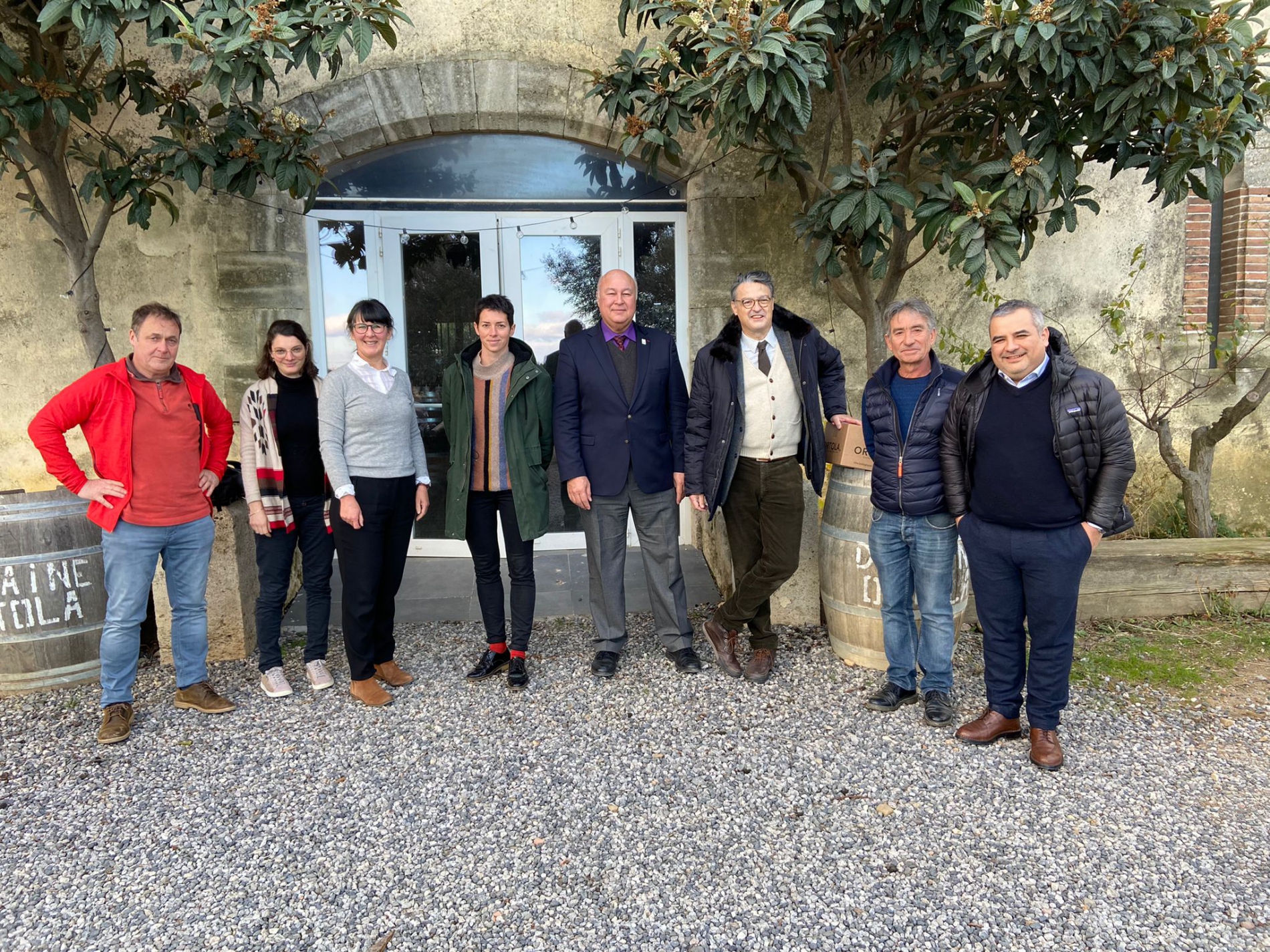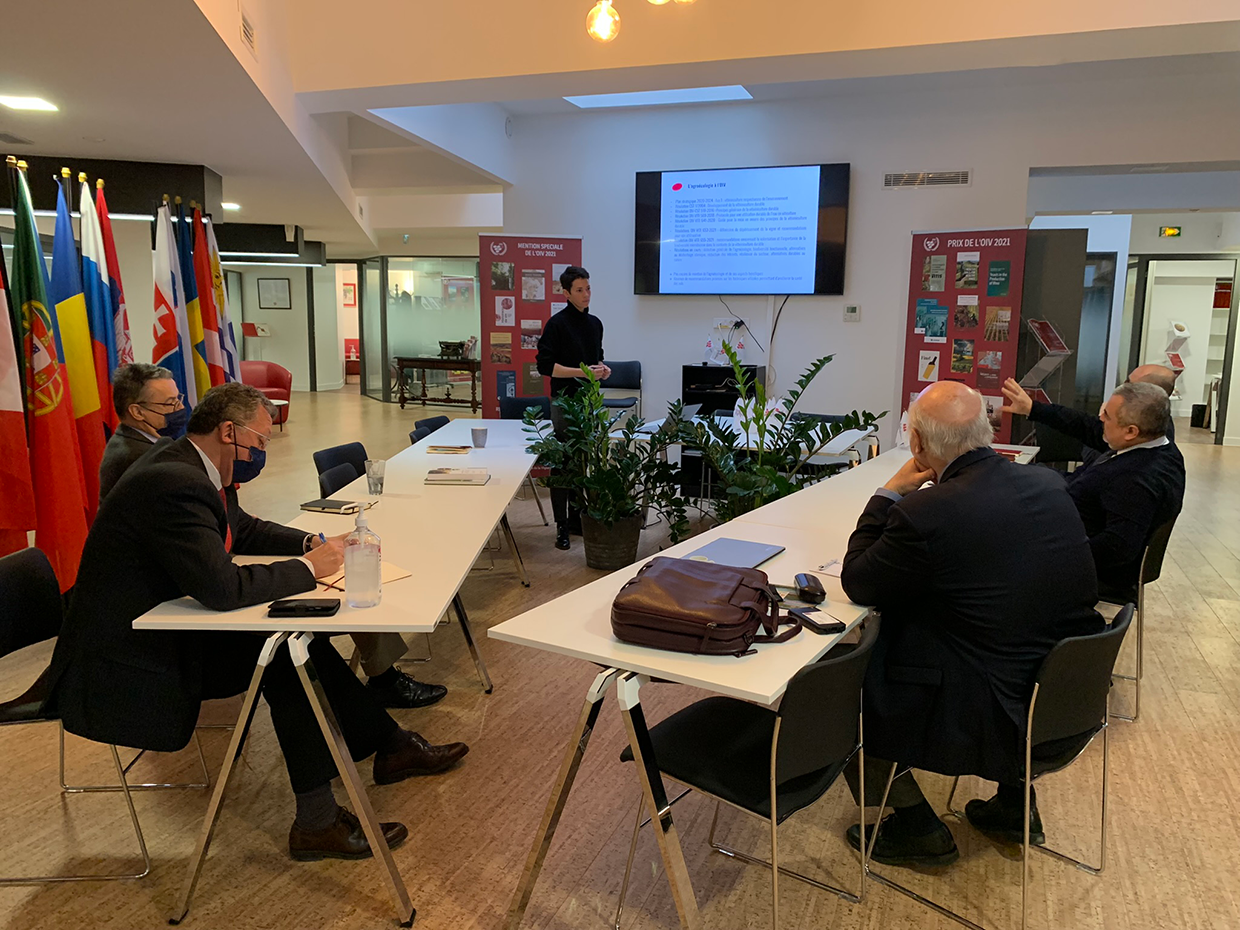
On 2 December 2021, OIV Director General Mr Pau Roca visited the Montpellier region for a day dedicated to the theme of “Sustainable viticulture: the role of agroecology and soil management”. This visit was also about deepening relations between the OIV and the “4 per 1000” initiative, thanks to the attendance of its Executive Secretary, Mr Paul Luu.
It was held at the Notre Dame du Quatourze estate owned by Mr Georges Ortola, who presented the agroecological practices that are implemented on his estates: inter-row cover cropping, tillage reduction, return of pruned canes to the soil, grazing, etc. The importance of good pruning practice has also been emphasised by Mr Alain Canet, President of France’s Centre National d’Agroécologie, who pointed out that pruning problems were recurrent in vineyards and had negative impacts on vine health. Florence Jard, from the “Pour une Agriculture du Vivant” association which works for the transformation of the agri-food sector to agroecology, gave a presentation of the Regeneration Index applied to vines – this makes it possible to evaluate holdings’ agroecological level.
“There was a shared vision of the importance of disseminating these practices to the sector as a whole.”
This day allowed for a rich exchange of ideas between stakeholders practising agroecology on a daily basis and institutional stakeholders. There was a shared vision of the importance of disseminating these practices to the sector as a whole. The OIV, via the “Viticulture” Unit led by Mr Alejandro Fuentes Espinoza, who is also a member of the “4 per 1000” initiative's Scientific and Technical Committee, takes this topic very seriously.

On 19 January 2022, another meeting was held between the executive bodies of the OIV and the “4 per 1000” initiative to contemplate the details of this collaboration. On this occasion, Ms Anne Reutin, a researcher at the OIV, presented her work on carbon issues in the vitivinicultural sector and the importance of taking these issues in hand in political, technical and scientific terms. Both institutions envisage working together and developing key areas of work as well as discussions to achieve progress at the international level on this major topic of soil health and safety.
Read Russian version here